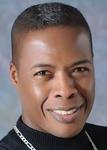-
Do The Numbers Really Matter?
Contributed by Antonio Torrence on Nov 28, 2017 (message contributor)
Summary: This sermon is about entrusting Christ with what you have regardless of the size, quantity, and condition.
As diligent as the disciples were, they seem to always find themselves dealing with mathematical impossibilities with Jesus. This group of fishermen, tax collectors, reformed zealots, and farmers did know basic math; but they didn’t quite know Jesus. Mark, the evangelist, reports to us an occasion whereby Jesus had to repeat a lesson on divine mathematics so that his team would know the power of faith over the lack of their possessions.
And we still need those lessons repeated to us today in our society whereby we have seen the consequences of poor math calculations. Our minds are still pondering over how having the most popular votes doesn’t outweigh the electoral college. Or, how the number of attendees at a Presidential inauguration is more important than the number of protesters at marching for Black Lives Matter, Women Rights, LGBT Rights, and Immigration Rights. Whether it is a matter of counting or being counted, it seems that we also can use a lesson in divine mathematics.
So that lesson begins in our text where we find Jesus and disciples somewhere in a desolated region of the Decapolis and the crowds have again gathered. Jesus has been teaching, healing, and casting out demons and this crowd has remained with him. Similar to when Jesus fed the five thousand along the sea of Galilee, Jesus takes compassion upon these persons and desires to feed them as well. And, ironically we hear almost the same set of questions between Jesus and the disciples repeated. The disciples: “How can one feed these people with bread here in the desert?” Jesus’ response: How many loaves do you have?
And if I were to add a question to this Socratic dialogue between Jesus and the disciples it would probably be this: why does it matter to Jesus how much the disciples had? Why on this particular occasion, rather than ask what do you have, he asks how much do you have? Did the numbers really matter? The numbers didn’t matter when he cast out a legion of demons from a man who lived in a graveyard. The numbers did not matter when the woman suffering from an issue of blood for twelve years pressed her way through a crowd to touch the hem of Jesus’ garment and was healed. Nor did they seem to matter when Jesus took that boy’s five loaves and two fish and fed five thousand people. So why do they matter now? Is God limited by our numbers? Is God confined to the budget of our tithes, the numbers sitting in the pews, or those we have listed on the church rolls?
I would surmise that for the divine one the numbers do not matter but what you choose to do with them does. We serve a God that respond to our faith in action. As we take action in faith, God is faithful to respond in action. Look at the text.
Jesus responds the hunger of the crowd because they stayed with him for three days. The Greek word used to describe that staying comes from pros-me'-no, meaning to continue with and to hold fast to the grace of God received. For God’s divine mathematics to occur in our lives we have to stay the course. No matter how difficult it may get, stay. Even if we face dark days similar to those as when Jesus was shut up in a tomb we are to stay. Because just like he got up, so too we when we hold fast and stay.
Secondly, we see that Jesus ordered the crowd to sit down. There will be times that in order to get our hunger met, we too will have to take a seat according to God’s will. Often to be counted in a society does that discount the oppressed, the forgotten, and the unwanted, you have to take stand by first humbly taking a seat, like Rosa Parks on Montgomery bus, or the four young black men who sat down at segregated Woolworth lunch counter, in Greensboro, NC, or the 600 LGBT sat in silent protest on the steps of the Supreme Court against the decision of Bowers v. Hardwick and in California against Proposition 8. Every now and then, in order to be counted, you may have to sit down in non-violent protest so that your numbers can be seen and your hunger for righteousness, justice and equality can be heard.
Finally, the haves will have to be a blessing to the have-nots. Here is where the disciples had to learn self-sacrifice. Jesus challenged his vital few to step up and make a sacrifice by handing over their own provision for the feeding of the masses. The Question was “how many loaves do you have?” You see before at the feeding of the 5,000, it was easy to go searching through the crowd getting someone else to give up their lunch and give it to Jesus, but when it’s your own it more challenging especially when you have already left family, friends, and businesses. But in the spirit of showing real compassion to those in need, the vital few are often called to just give a little more: More time for reaching the lost, More tithes for financing mission, More talent for setting at liberty the oppressed. To the much that is given, much is required.

 Sermon Central
Sermon Central



